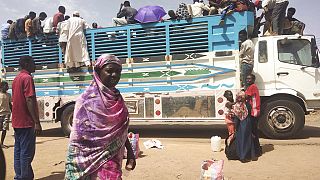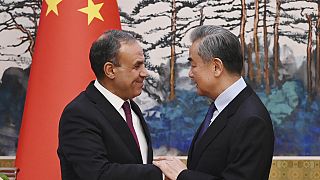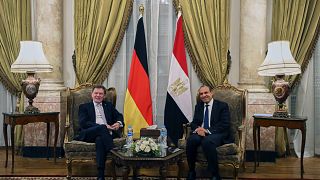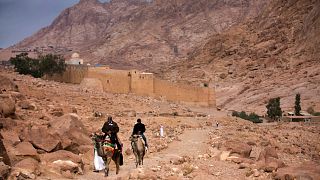The Morning Call
On this week’s edition of Business Chronicle, we examine the economic impact of hosting an AFCON game.
The benefits that come with cities getting to host such tournaments as AFCON are enormous.
Firstly, such cities get infrastructural boosts with revamping of new social amenities as many tourists are expected to visit.
The country’s economy also benefits from the influx of people coming to patronize the tournaments naming from hospitality, catering and entertainment industries, etc.
The 2019 AFCON competition held in Egypt must have come and gone but the outcome still continues to springs to mind.
However, Egypt’s revenue from the Africa Cup reached $83 million dollars according to Confederation of African Football (CAF) chief, Ahmad Ahmad.
Ahmad said the revenue for the tournament edition exceeded the one held in Equatorial Guinea in 2015 and Gabon in 2017.
In the case of Egypt, the capital Cairo was the main center of action and attraction, not only because the host team was based there but because it hosted three groups – A, C and D. The three other cities involved were Alexandria, Suez and Ismailia.
Cairo the largest city in Africa; is a major port just to the south of the Nile delta; formerly the home of the Pharaohs.
This appears to be the best of times for the Egyptian football scene with hosting of the tournament the fifth time.
If you recall Cameroon was stripped of the hosting rights for the African Cup of Nations (AFCON) 2019 because of delays with preparations as well as security concerns.
There’s no denying that hosting a large scale sporting event comes at a cost. There are years of planning and investment to ensure that the necessary infrastructural work gets done. This kind of financial commitment is daunting for any nation.
However, countries opt to host events like this because they believe that there will be positive economic and social spin offs.
So what are the likely impacts on Cameroon after losing the event and if she fails this time?
Firstly, loosing a great deal of good publicity. Hosting major sports events often helps to increase the positive profile of the host nation.
CAF’s decision is also likely to tarnish Cameroon’s international reputation. And it’s likely to affect the country’s economy.
The short term economic boost which is typically associated with big events is a surge in visitors, athletes and media who spend and inject money into the local economy was also lost.
In the longer term, a significant benefit of hosting a prestigious competition is investment which inevitably leaves a legacy of improved sporting venues and the creation of local jobs.
The confederation of African Football made the defining decision to move the AFCON to odd numbered years for many reasons. One of those may have included optimizing TV rights acquisition purchases as in odd years.
But away from TV rights, another major revenue stream of the AFCON for CAF is the jostle for brand association and equity. In the 2013 edition, Pepsi, Adidas, Standard Bank, Samsung and Puma all continued with existing contracts of partnership running through 2016 (Samsung’s deal ran until 2015).
The real carrot for host nations is the implications of the tournament on their economies. Sadly, the economic effects of sporting events reach their zenith during and shortly after the event is concluded.
For the African continent as a whole, the AFCON represents a big chance of player sales which sees funds flow into the various football systems in the individual countries in the case of African based players.
For these players, the lure of European football is overwhelming, and their sales generate a nice slice of the jackpot as in terms of revenue, the European football market is estimated to be valued at an astonishing ($22 billion). For the African based players and their football clubs, this is a win-win scenario.
Interesting, all participating teams at the 2019 competition pocket home at least $600,000. The winner of the 2019 AFCON trophy took home $4.5 in addition to the trophy.
It is on record that last year’s winner and Defending champions, Cameroon got $4 million for winning the 2017 AFCON. Runners up, Egypt received $2 million, while Burkina Faso and Ghana, the two semifinalists, went home with $1.5 million each.
And it will interest you to know that this is the first time in the history of the competition, where 24 teams are participating against 16 teams as it was formerly. This development has been viewed by many sports pundits as a source to bring additional revenue to CAF as a body.





![Africanews celebrates fifth anniversary [Night Shift]](https://static.euronews.com/articles/stories/05/57/72/74/320x180_cmsv2_6b1e7837-a917-526b-b3b4-4582a3f8bcac-5577274.jpg)
![Africanews celebrates fifth anniversary [Morning Call]](https://static.euronews.com/articles/stories/05/57/72/70/320x180_cmsv2_a6c857d4-80a3-510a-88e6-f060ea8d9ee9-5577270.jpg)






01:46
Algerian football players deal with intense heat as season ends
00:33
Mamelodi Sundowns victorious in Club World Cup debut match
Go to video
2026 World Cup: One year to go
00:48
Zambia's Banda scores fastest hat-trick in NWSL history
Go to video
Confederation of African Football and European Commission sign partnership agreement
Go to video
Cameroon soccer great Emmanuel Kundé dies at age 68